Following last year’s online debate, the highly anticipated Preliminary Round of the 2nd Chinese Friendship Debate Contest held by the International Division kicked off at 3:00 pm on Friday, March 11, 2023.
Venue 1:
Topic: Is long-term effort (Affirmative side) or lucky opportunity (Negative side) the key to success?
Affirmative side includes Luan Yuyan, Dai Jiachen from Class 11A, Xu Junxi from 11B and Li Pingan from 11I.
Negative side includes Lin Sitong from 9B, Qian Siyi and Zhou Weiwen from 9A, and Wang Zhiyuan from 9B.
During the debate, team members of the negative side introduced about the concept of “swift horse and talent scout” they got to know from the Chinese class and mentioned the viewpoint of “the times produce their heroes,” demonstrating the ability to apply knowledge in practical situations. They also used the example of personal success through short videos on social media as evidence, which was quite innovative. On the other hand, the affirmative team’s first debater, Xu Junxi, started by defining the concept of “success,” arguing that “effort” is subjectively controllable, while “lucky opportunities” have temporal advantages, are uncontrollable and cannot be sought after, thus elevating the notion of success to both personal and societal levels. During the free debate, the affirmative team responded to the example of social media influencers, arguing that the success of short videos is not only due to “opportunities,” but also a result of subjective, persistent effort and strategic topic selection. The fourth debater, Li Pingan, offered a highly praised summary that explored the relationship between the internal and external factors and success from a philosophical perspective, presenting their ideas in a clear and well-organized manner.
After the debate, a teacher Wu Dan gave feedbacks on various aspects including language expression, logical organization, teamwork division, and demeanor, and she praised the strength of each team while also pointing out aspects for improvement. During the debate, both teams responded to the questions raised by the other side. Debate is an interactive process, and one should not avoid responding to the opposition’s questions. Moreover, consistency in viewpoints and perspective is essential. Furthermore, it is important to follow the debate etiquette when delivering wonderful speeches.
Students from all grades exhibited impressive skills in the contest. Ultimately, the affirmative team from Grade 11 won.
Venue 2:
Topic: Does online social media bring people closer or create more distance between them?
Team of Grade 10: Wang Shiyu from 10A, Ma Jinhang from 10A, Wang Yuqian from 10B, and Sun Zhuoxian from 10B
Team of Grade 12: Wang Zijian from 12A, Cai Xiangya from 12B, Qianzelongxing from 12I, and Li Jiajia from 12A
The first debater of the affirmative team (Grade 10), Sun Zhuoxian, began by expressing their standpoint, establishing that online social media can bring people closer, and emphasized on the unique capacity of online communication to overcome barriers of time and space through dictionary definition. On the other hand, the first debater of the negative team (Grade 12), Wang Zijian, presented a calm and composed argument that digital communication can create distance in interpersonal relationships and emphasized on the lack of warmth and emotional connection in digital communication.
The second debater of the affirmative team, Ma Jinhang, skillfully used real-life examples from their classmates to demonstrate that online social media serves as a vital link of connecting people and is indispensable for keeping in touch with family and friends who live in different locations. The second debater of the negative team, Cai Xiangya, exhibited clear logic and used real-world data to emphasize on the negative emotional impact that online social media can have on individuals and highlighted the harmful effects of online social media on interpersonal relationships.
The third debater of the affirmative team, Zhang Sirou, performed brilliantly under pressure by supplementing their team’s argument with the point that online social media is not the only or dominant way people communicate by and can complement other forms of communication and enrich interactions in various situations without creating distance in relationships. On the other hand, the third debater of the negative team, Qianzelongxing clearly illustrated the difference in the effectiveness of different communication methods by comparing a real-life hug with an online emoji.
During the free debate, the Grade 12 debaters took the lead and gained an advantage in dominating the trend, but the Grade 10 debaters refused to be left behind and they showed their strength when given the opportunity. The two sides confronted each other head-on and engaged in a heated argument.
In the concluding remarks, the fourth debater of the affirmative team, Li Jiajia, seized on the point that digital technology is inferior to face-to-face communication and can have counterproductive effects. Meanwhile, the fourth debater of the negative team, Wang Yuqian, summarized their arguments by stating that the use of online social media can bring people closer, allowing individuals to feel a sense of familiarity and closeness despite being physically far apart.
A teacher Zhou Yajie commented on both teams’ strengths and weaknesses, highlighted the standout moments of the debate, and offered insights into the topic at hand. She then praised the students’ ability of using supporting evidence to bolster arguments and encouraged them to explore more comprehensive approaches to debating. A discussion among the students was also included in the comment process to guide the debaters to think deeply.
After an intense round of judging and voting, the Grade 12 team advanced to the finals.
In the fierce contest, participants from all four grades demonstrated their ability to think deeply and argue flexibly. The International Division hereby would like to extend congratulations to the team that has advanced to the finals, and gratitude and encouragement to the participants who did not make it. The finals will be held on March 23rd with the topic – “Is the use of CHATGPT more beneficial than harmful or more harmful than beneficial?” Lets’ all Look forward to the finals!


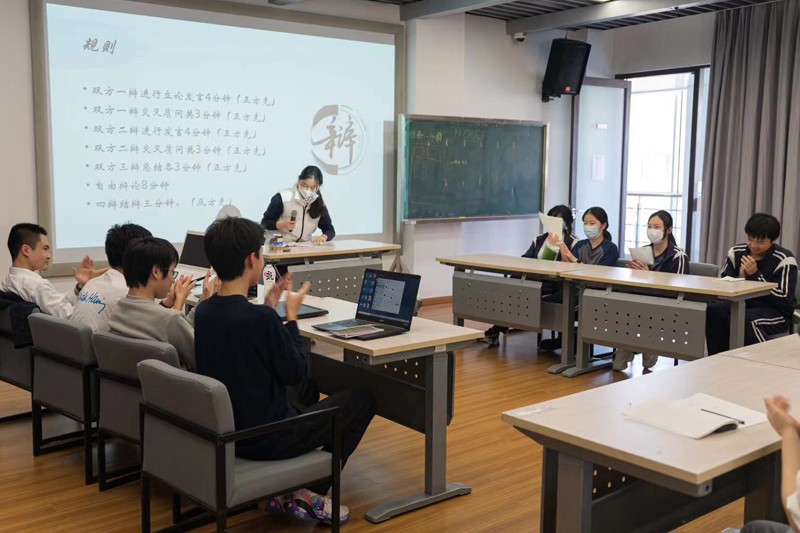
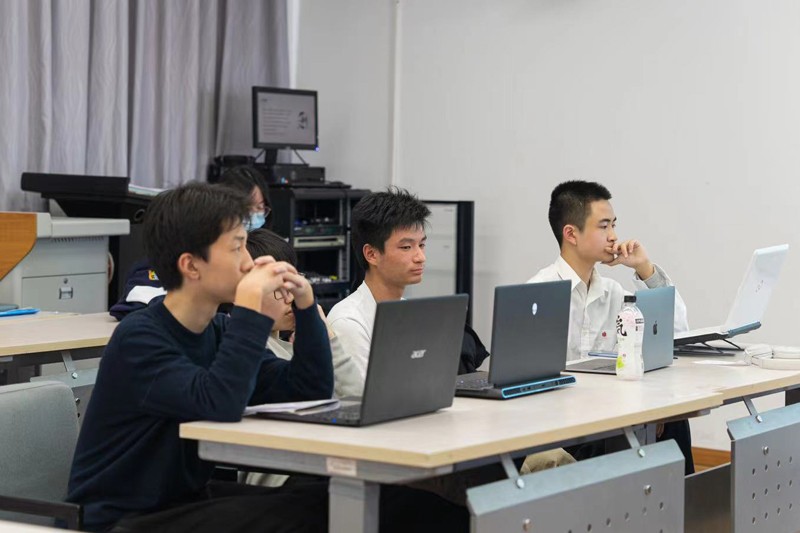
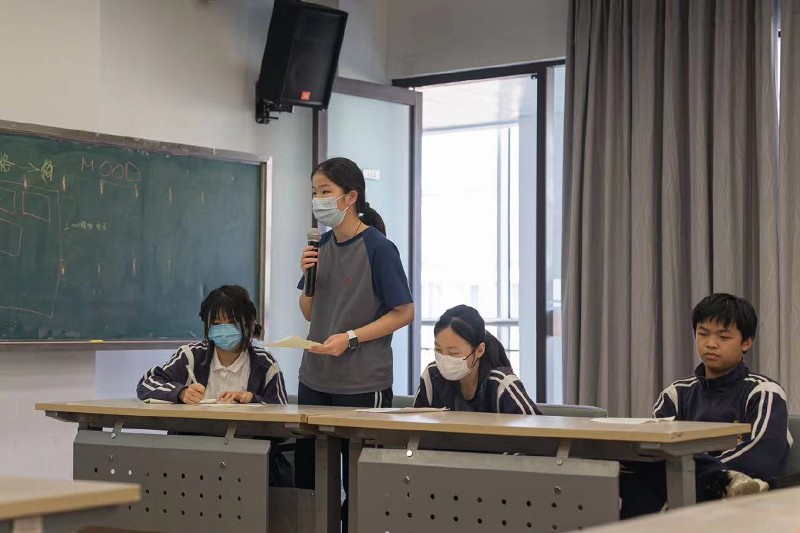
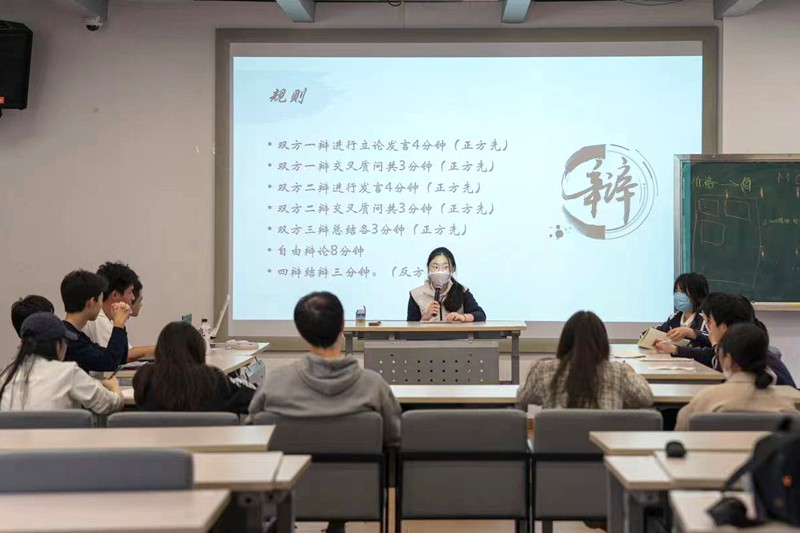
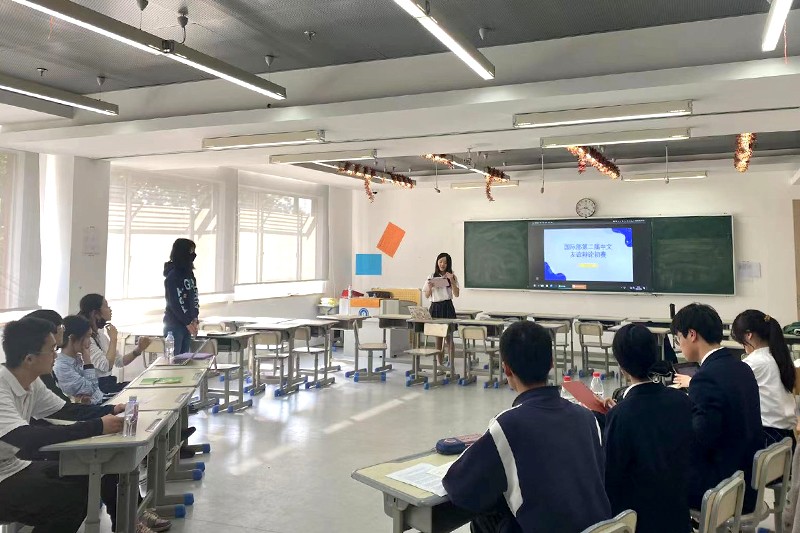
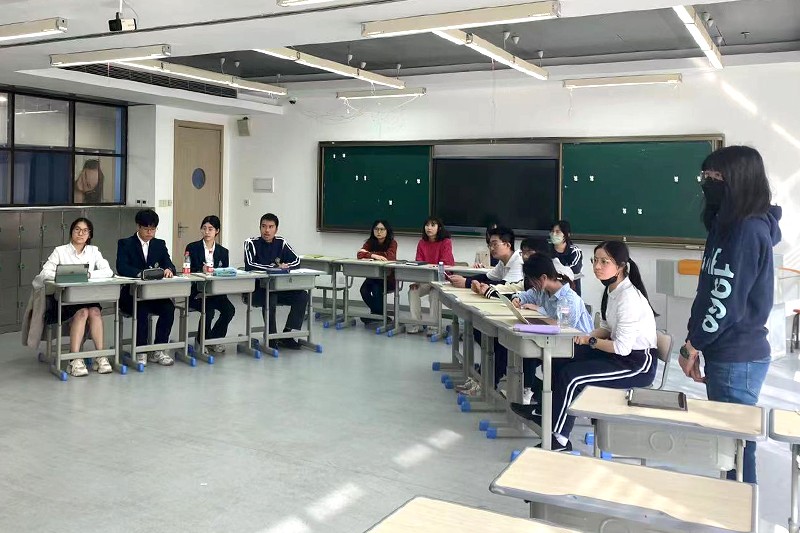
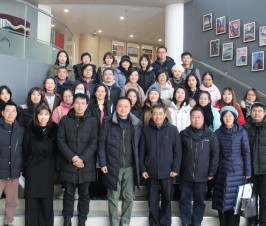
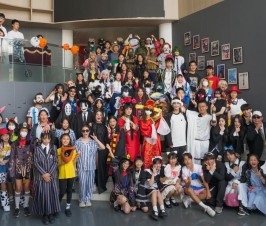
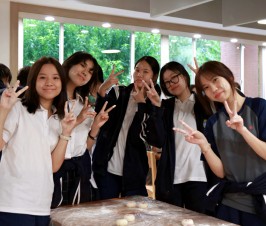

 上海市浦东新区晨晖路555号
上海市浦东新区晨晖路555号 201203
201203 hsefz@hsefz.cn
hsefz@hsefz.cn 021-50801890
021-50801890 021-50804338
021-50804338
